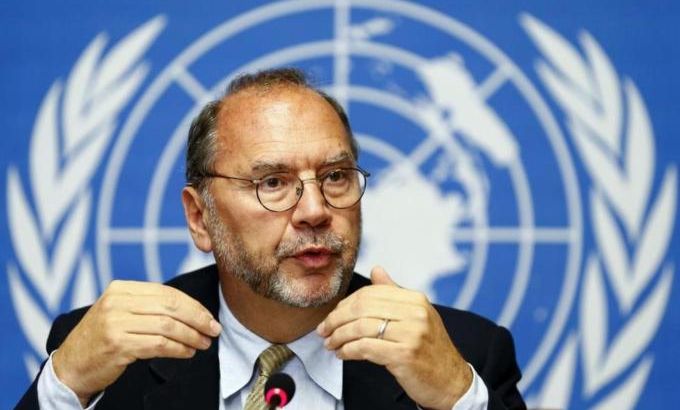
Peter Piot: ‘Ebola response took too long’
Scientist who first discovered Ebola discusses the magnitude of the outbreak and Western ‘hysteria’ about the crisis.
In recent months the media has been awash with haunting pictures of suffering patients and the health workers who cannot save them – cannot even touch them – for risk of contracting a virus which has caused fear, panic and stigma.
Since the world’s worst Ebola outbreak began in Guinea almost a year ago, it has killed more than 6,000 people and continues to spread. In some areas, the fatality rate is as high as 90 percent. Most cases are in West Africa, but there has been diagnosis of a patient in Spain and several others in the US.
Keep reading
list of 4 itemsWoman, seeking loan, wheels corpse into Brazilian bank
UK set to ban tobacco sales for a ‘smoke-free’ generation. Will it work?
Poland lawmakers take steps towards liberalising abortion laws
However, this virus is not a new discovery. Back in 1976 scientists first came across a mysterious disease in the Democratic Republic of Congo and named it Ebola after a nearby river.
I have a problem with the fact that it took five months for WHO ... to declare this a state of emergency. It took a thousand dead Africans and two Americans who were repatriated to the US because they were infected. There's no excuse for that ... it took too long, we wasted too much precious time.
Microbiologist Peter Piot, one of the scientists who discovered the virus, is critical of the World Health Organization (WHO) for taking five months to declare an emergency in the recent outbreak.
“It took a thousand dead Africans and two Americans who were repatriated to the US because they were infected. There’s no excuse for that … it took too long, we wasted too much precious time,” he says.
He talks about what he calls an epidemic of ‘hysteria’ in the US and the UK’s reactions to the outbreak.
“There is an epidemic of Ebola in West Africa and then there is a second epidemic, an epidemic of mass hysteria that we saw particularly in North America. And it was really out of proportion with the issue,” he says.
“Of course, people have become infected, one nurse has become infected in Texas, but you know putting people in quarantine who return from West Africa for 21 days – as some US states are imposing – doesn’t make sense from a public health perspective, it’s not cost effective and also it’s a major deterrent and disincentive for supporting the countries in West Africa.”
Piot says the most effective way to stop the epidemic is to address the lack of robust healthcare systems in many West African countries, and also deal with local cultural practices and belief systems, such as ideas of ‘witchcraft’ and the habit of touching the dead at funerals.
But progress is being made. According to the WHO, 70 percent of all funerals are now conducted in a safe manner. And 70 percent of all patients are isolated and treated. But before this ends, these numbers must reach 100 percent.
Meanwhile, pharmaceutical companies are racing to find both vaccines and effective treatments.
So, nearly four decades after Ebola was first discovered, why is there still no cure? Should experimental drugs be tested on patients in Africa? And why was the world so slow to realise the enormity of the crisis?
On this episode of Talk to Al Jazeera, Felicity Barr sits down with the director of the London School of Hygiene and Tropical Medicine, Professor Peter Piot.
 | Talk to Al Jazeera can be seen each week at the following times GMT: Saturday: 0430; Sunday: 0830 and 1930; Monday: 1430. |